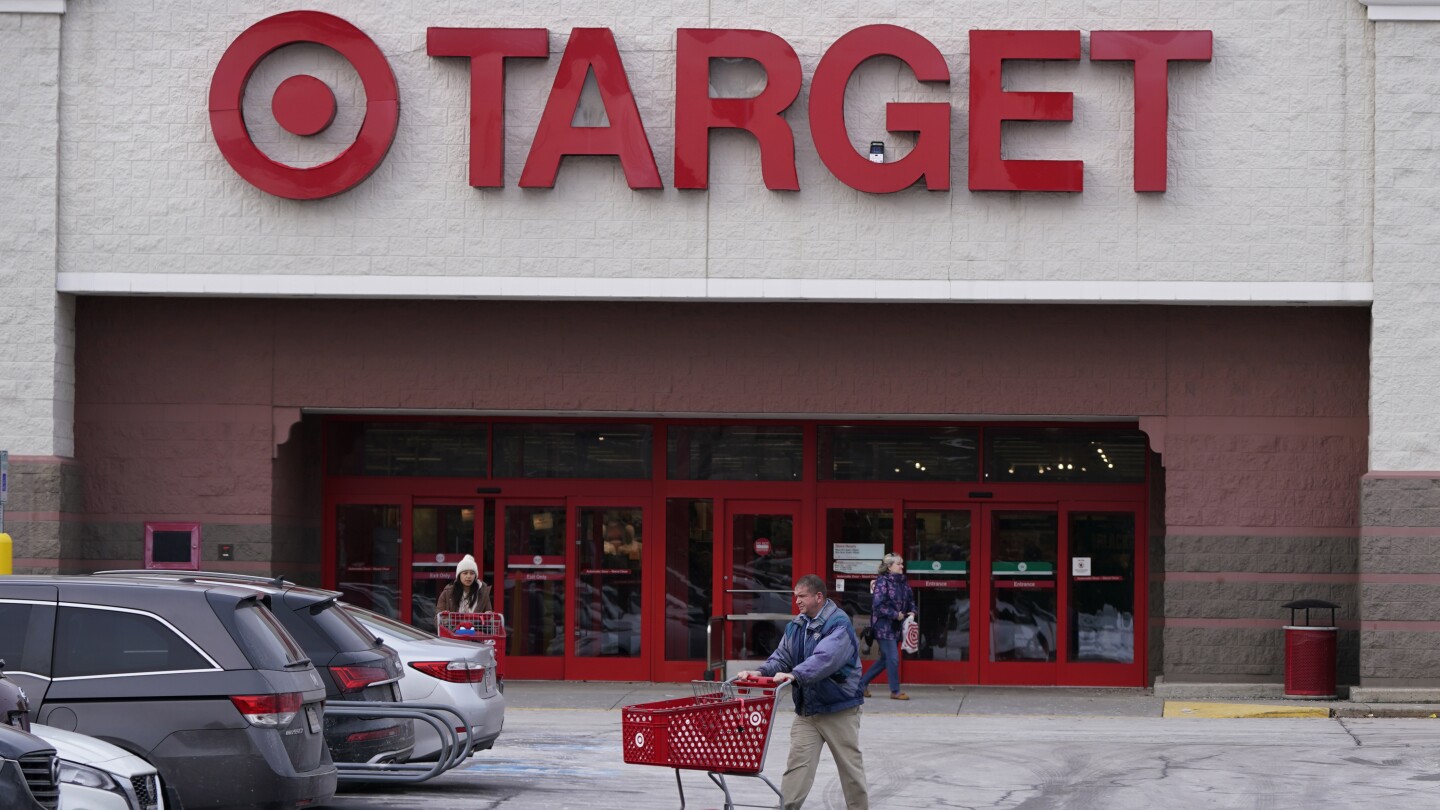NEW YORK (AP) — Target on Wednesday reported a hefty third-quarter profit increase that handily beat Wall Street expectations as the retailer held down costs and cut inventory. Revenue slipped more than 4%, however, as customers saddled with broadly higher costs pulled back on spending as the holiday season nears.
The Minneapolis retailer has been trying to right itself after loading up with too much inventory last summer and was forced to discount heavily to clear it. Now, many customers are making tough decisions about what they can afford because prices for food and other basics have climbed. Inflation has moderated, but a bigger chunk of paychecks is needed to cover immediate needs.
CEO Brian Cornell said on a conference call with reporters on Tuesday that higher interest rates, increased credit card debt and reduced savings rates have left customers with less discretionary income, forcing them to do trade-offs. For example, he said that the chain is seeing more consumers making last-minute purchases on such items as gas. And instead of buying sweatshirts or denim in August or September, they’re now waiting until the weather turns cold.
“It’s clear that consumers have been remarkably resilient,” Cornell said. “Yet in our research, things like uncertainty, caution and managing a budget are top of mind.”
Cornell noted that food prices are up 25% compared with 2020.
Target is among the first major U.S. retailers to report the latest quarterly results. Walmart and Macy’s report on Thursday and may provide a better idea of how consumers are feeling as the holiday approaches.
Home Depot, the nation’s largest home improvement chain, reported on Tuesday that sales slid as homeowners held off on larger renovations and things like appliances, which are often purchased with credit cards.
Target narrowed its outlook for the year as well on Wednesday.
Target is more vulnerable than Walmart and other big box discounters. More than 50% of Target’s annual sales come from discretionary items like toys, fashion and electronic gadgets.
Target’s falling sales come amid a broader pullback in spending by U.S. consumers.
Target’s earnings results came on the same day that data from the U.S. Commerce Department showed Americans cut back on retail spending in October, ending six straight months of gains. Falling prices for gasoline and cars, however, contributed to some of that spending decline.
Retail sales declined 0.1% last month after jumping 0.9% in September. Excluding sales of gas and autos, retail sales ticked up 0.1%.
Target reported a 36% increase in third-quarter profit of $971 million, or $2.10 per share, easily beating Wall Street expectations for per-share earnings of $1.47, according to FactSet.
Revenue fell 4.2% to $25.4 billion, but that too was better than than the $25.29 billion that industry analysts were expecting.
Shares jumped 17% in early trading Wednesday, but that’s still down roughly 30% from a year ago.
Target has been cutting back its orders of discretionary goods like clothing and trendy home furnishings in favor of cosmetics and basics such as food. As of the end of the third quarter, inventory was down 14%, the company said. To entice shoppers to buy this holiday season, Target said it will offer more than 10,000 new items for the holidays, with thousands of gifts under $25.
Target’s beauty business continues to do well. And while comparable sales in home goods declined compared with the same time year ago, that category was up compared to the previous quarter, according to Christina Hennington, Target’s chief growth officer. The company’s new home grown kitchen brand called Figment has received good reception from shoppers, she said.
And even while apparel sales are still in a slump, that business showed improvement from the previous quarter, Hennington said.
Target has also said that its profits have been hurt by rising theft at its stores. In late September, the retailer announced that it would close nine stores in four states, including one in New York City’s East Harlem neighborhood, and three in the San Francisco Bay Area, effective Oct. 21. The company says that theft and organized retail crime have threatened the safety of its workers and customers.
Its third-quarter comparable sales — those from stores or digital channels operating for the past 12 months — fell 4.9% in the most recent quarter. Those sales fell 5.4% in the second quarter.
For the fourth quarter, Target expects comparable sales in a wide range around a mid-single digit decline, and earnings per share of $1.90 to $2.60 per share. Analysts are expecting $2.23 per share.
______
Follow Anne D’Innocenzio: http://twitter.com/ADInnocenzio

